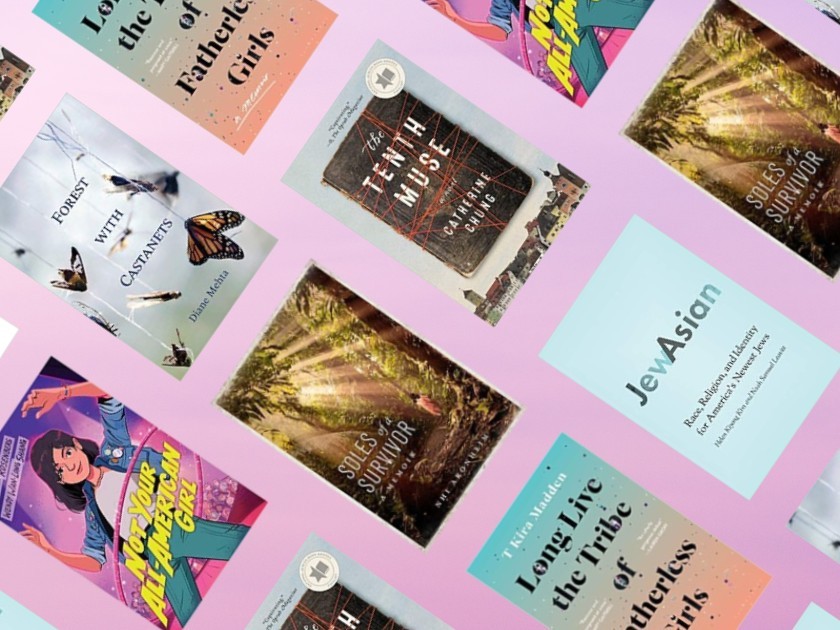
Updated May, 2022
Explore ten thought-provoking reads that depict some of the many facets of the Jewish Asian American experience.
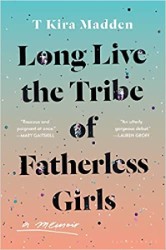
Long Live the Tribe of Fatherless Girls: A Memoir
T Kira Madden
“This stunning, compulsively readable debut memoir tells the story of T Kira Madden’s coming-of-age in the swampy, surreal world of wealthy Boca Raton, Florida.… Madden gropes through the shadows of memory and research to uncover family secrets and determine who she is as a biracial (her mother is Chinese-Hawaiian and her father is white Jewish), queer girl.” — Jessie Szalay
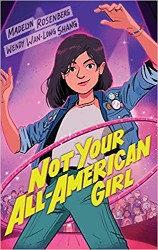
Madelyn Rosenberg and Wendy Wan-Long Shang
“Lauren is Chinese American and Jewish. She has always been aware of her mixed heritage — how could she not be, when one of her grandmothers, Wai Po, lives with her family, and the other, Safta, lives nearby? … By the book’s conclusion, she has become one of the more memorable characters in contemporary middle-grade books, a complex and self-aware young woman, forgiving of others’ weaknesses and proud of her own newfound strengths.” — Emily Schneider
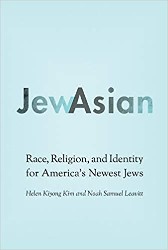
JewAsian: Race, Religion, and Identity for America’s Newest Jews
Helen Kiyong Kim and Noah Samuel Leavitt
“We were curious how other couples — JewAsian because of racial, ethnic, and sometimes religious difference — were figuring out, in light of these types of differences, how to sustain and nurture a marriage and family.” — Helen Kiyong Kim and Noah Samuel Leavitt, “Three Takeaways from Interviewing 110 ‘JewAsian’ Couples and Kids”
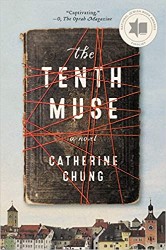
Catherine Chung
“The novel, set in both the United States and Europe, spans several decades, from the 1940s through current times… Sexism is one of the novel’s central themes, and Katherine, as a woman who attempts to carve her own path, who, like the ‘tenth muse,’ refuses to ‘sing in the voice of men,’ is a perfect target.” — Ona Russell
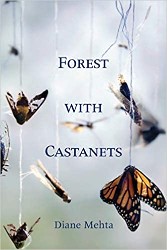
Diane Mehta
“I moved to an all-white New Jersey suburb at the age of seven; Indian-Jain and Jewish made me a double minority in the States, too. But here, people were less tolerant. I was the wrong religion and the wrong color, and frequently elicited foul treatment from other children.” — Diane Mehta, “‘I Am a Bombay on the Move’: Growing Up Jewish and Jain”
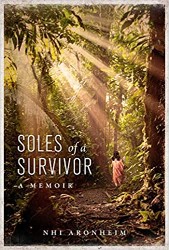
Soles of a Survivor: A Memoir
Nhi Aronheim
“Twelve-year-old Nhi Aronheim walked through the jungles of Cambodia barefoot, seeking a better life in America; the title of her affecting memoir, Soles of a Survivor, references the physical scars she still bears from that treacherous ordeal. Metaphorically, the title might also represent how she has consistently placed one foot in front of the other despite the pain.… [Aronheim] recognizes a parallel between the Jewish and Vietnamese cultures: the history of both is one of resilience and hope, as is her own story.” — Angela Himsel
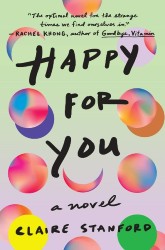
Claire Stanford
“[Evelyn] is Japanese and Jewish and doesn’t know where she fits into either culture.…The brilliance of Happy For You is in how it manages to convey many emotions and many lessons. As a satirical novel about tech culture, it’s unsettling and comic. As a novel of Evelyn’s growth, it’s both ironically removed and warmly intimate.” —Jessie Szalay
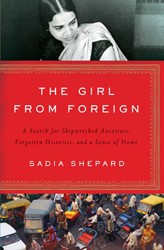
Sadia Shepard
“Filmmaker Sadia Shepard’s desire to unearth her family’s roots was sparked by the discovery that her South Asian grandmother was Jewish, from the Bene Israel community of India. What began as a research and documentary project into that community, however, became a deeply personal exploration of that dwindling Jewish culture and its fate in religiously partitioned India and Pakistan, and ultimately a quest to grasp her own complicated identity.” — Bob Goldfarb
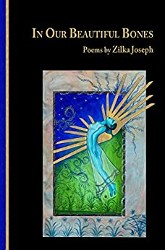
In Our Beautiful Bones
Zilka Joseph
“I was born in Mumbai, and lived in Kolkata, India, before immigrating to the US. My ancestors, who were called Shanwar telis—Saturday Oil Pressers, (tel is the Marathi word for oil, teli, one who presses oil) as that was the profession many took up. Since they did not work on shanwar—Saturday, the Sabbath– they were called Shanwar tellis.”—Zilka Joseph, “In My Bones”
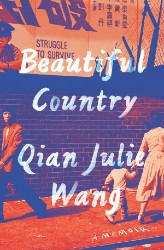
Beautiful Country: A Memoir
Qian Julie Wang
“I approached my first Yom Kippur with trepidation. It was not the idea of atonement that I feared, but the prospect of fasting, of choosing to go hungry. In 1994, when I was seven years old, I moved with my parents from northern China to New York City, where we lived in poverty as undocumented immigrants. Twenty-four years later, I remained haunted by the memory of attending elementary school every day on an empty stomach.” —Qian Julie Wang, “Hunger”
And forthcoming in summer 2022:
Tomorrow and Tomorrow and Tomorrow
Gabrielle Zevin
Emi Watanabe Cohen
Becca Kantor is the editorial director of Jewish Book Council and its annual print literary journal, Paper Brigade. She received a BA in English from the University of Pennsylvania and an MA in creative writing from the University of East Anglia. Becca was awarded a Fulbright fellowship to spend a year in Estonia writing and studying the country’s Jewish history. She lives in Brooklyn.